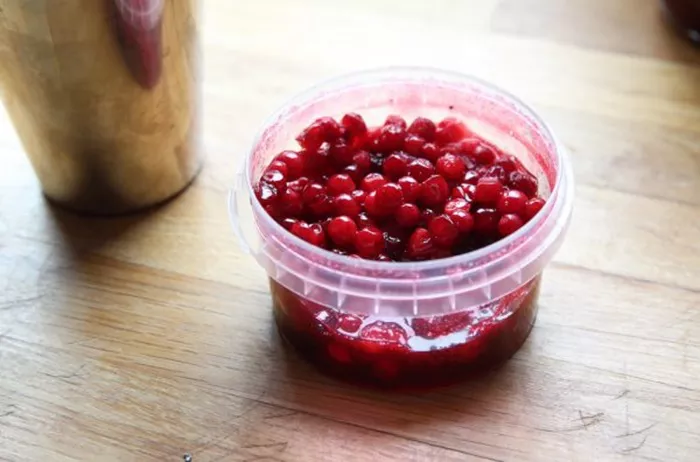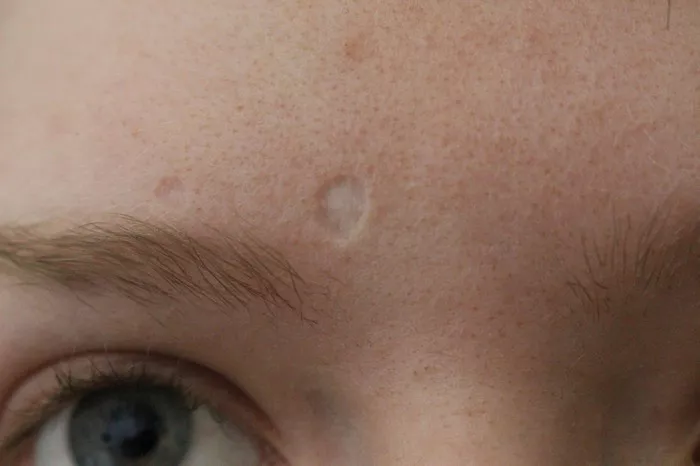After surgery, it is common to be left with a scar. While scarring is a natural part of the healing process, many people desire to minimize its appearance as much as possible. The right ointment can play a significant role in improving the healing of surgical scars, helping to reduce inflammation, promote tissue regeneration, and ultimately minimize scar formation. With so many options available, choosing the best ointment for surgical scars can be a challenge. The choice depends on various factors such as the type of surgery, the size of the incision, and individual skin reactions.
When it comes to surgical scars, the healing process typically involves the formation of new tissue that eventually turns into scar tissue. The goal of any ointment is to support this natural process by providing the skin with the necessary ingredients to heal efficiently. However, it’s important to remember that no ointment will completely erase a scar, though they can help improve the texture, color, and overall appearance of the scar.
In this article, we will discuss the types of ointments commonly used for surgical scars, the ingredients to look for, and how to select the right product for your skin. By understanding the science behind scar healing and the ointment options available, you can make an informed decision that supports your skin’s recovery.
How Scars Form and Heal
Before delving into the best ointments for surgical scars, it’s important to understand the process of scar formation and how ointments work to improve healing.
Stages of Scar Healing
Scar healing occurs in several stages. The first stage, hemostasis, involves the clotting of blood to stop any bleeding. Following this, the inflammatory stage takes place, during which white blood cells clear away bacteria and debris. The third phase is proliferation, where new tissue, including collagen, is formed. Finally, the maturation phase occurs, where the scar tissue is remodeled and the scar gradually fades over time. The maturation phase can take months or even years, depending on the severity and location of the scar.
Factors That Affect Scar Healing
Several factors can affect how well and how quickly a scar heals. The individual’s age, genetics, overall health, and lifestyle choices (such as smoking or nutrition) can all play a role in the formation of scars. Furthermore, the depth and size of the wound, as well as how the wound was closed (sutured or left to heal naturally), also influence the healing process.
The Role of Ointments
Ointments for surgical scars work by promoting healing, reducing inflammation, and minimizing the appearance of the scar. They can hydrate the skin, prevent excessive scar tissue formation, and sometimes even aid in collagen production. The goal is to make the scar less noticeable and help the skin heal more efficiently.
Types of Ointments for Surgical Scars
There are many ointments available that claim to reduce the appearance of scars. Some contain active ingredients that help hydrate and heal the skin, while others contain specific compounds known to reduce scarring or improve skin regeneration. The following are some of the most commonly recommended types of ointments for surgical scars.
1. Silicone-Based Ointments
Silicone is one of the most widely recommended ingredients for scar treatment. Silicone-based gels, sheets, and ointments are known for their ability to reduce scar formation and improve the appearance of existing scars. These products create a barrier over the scar, helping to lock in moisture and regulate the production of collagen. This can help to flatten and soften the scar tissue, reducing its visibility.
Silicone is most effective when applied to the scar after the wound has fully closed. It is suitable for both new and older scars and can be used for scars caused by surgery, burns, and even injuries. Some well-known silicone-based ointments include:
Mederma Advanced Scar Gel: Mederma is a popular over-the-counter gel that contains silicone and is designed to reduce the appearance of scars over time.
Bio-Oil: While primarily used for stretch marks, Bio-Oil also contains silicone and is effective at improving the texture of scars.
2. Vitamin E Ointments
Vitamin E is often recommended as a treatment for scars due to its potential to promote skin healing and reduce scarring. Vitamin E is an antioxidant, which helps protect the skin from damage, and it has been shown to enhance collagen production, an important element in wound healing.
There is some debate over the effectiveness of vitamin E for scar healing, with some studies showing that it may not be as effective as other treatments and in some cases may cause irritation. However, many people still find that vitamin E ointments help improve the overall appearance of their scars. Some commonly used vitamin E-based products include:
Dermatologist-approved Vitamin E creams: These creams typically contain a high concentration of vitamin E, designed to hydrate the skin and promote healing.
Nature’s Bounty Vitamin E Oil: This oil is a popular choice for those looking for a more natural option to treat scars.
3. Honey-Based Ointments
Honey has been used for centuries for its healing properties. It is particularly beneficial in the early stages of scar healing because it has natural antibacterial properties and helps to keep the wound moist, preventing infection. Honey also promotes tissue regeneration and can reduce inflammation, making it an excellent natural option for managing scars.
Manuka honey, derived from the nectar of the manuka tree, is particularly effective because it has higher antibacterial properties compared to regular honey. Several ointments and creams incorporate honey as a main ingredient, including:
Medihoney: This is a medical-grade honey-based ointment used for wound care, including post-surgical scars.
Burt’s Bees Res-Q Ointment: While not strictly a honey-based ointment, this natural salve contains honey and other skin-healing ingredients.
4. Hydrocortisone Ointments
Hydrocortisone is a corticosteroid that can reduce inflammation and redness around a healing wound. It may be useful in preventing or treating hypertrophic scars (raised scars) or keloids. However, it should only be used under the guidance of a healthcare provider, as prolonged use of hydrocortisone can thin the skin and potentially worsen scarring over time.
Hydrocortisone ointment is typically available over-the-counter in 0.5% or 1% concentrations. It’s important to use it sparingly and not to apply it to open wounds or for extended periods.
5. Retinoid Creams
Retinoids, derived from vitamin A, are known for their ability to promote skin cell turnover and enhance collagen production. They can be effective at improving the appearance of scars, particularly when the scars are older or more entrenched. Retinoids help to regenerate the skin and may reduce discoloration, making scars less noticeable over time.
Retinoid creams are typically used on older scars or scars that have fully healed. They are generally not recommended for use on fresh surgical scars until the wound has fully closed. Some retinoid-based products include:
Tretinoin (Retin-A): A prescription retinoid cream that can help reduce the appearance of scars by promoting collagen formation.
Differin (Adapalene): A less potent over-the-counter retinoid that may help improve scar texture over time.
Choosing the Best Ointment for Your Surgical Scar
Selecting the right ointment for your surgical scar depends on several factors, including the stage of healing, the type of scar, and your skin type. Here are some tips to help you choose the best ointment:
1. Consider the Stage of Your Scar
If your scar is still in the early stages of healing, you’ll want to focus on keeping the area moist and free of infection. Silicone-based ointments and honey-based products are great options during this time. Once the scar has fully healed, you may want to switch to a product with retinoids or vitamin E for improving the texture and appearance of the scar.
2. Evaluate the Scar Type
If you are prone to hypertrophic scars or keloids, you may benefit from using hydrocortisone or silicone-based treatments. These products help reduce excessive collagen production and flatten raised scars. For flat scars, ointments like vitamin E and honey may be sufficient to improve their appearance.
3. Choose the Right Formula for Your Skin
If you have sensitive skin, be cautious when using retinoids or hydrocortisone, as they can cause irritation. Opt for gentler options like silicone gels or honey-based ointments. Always patch-test a small amount of ointment before applying it to the entire scar to ensure you don’t experience any adverse reactions.
Additional Tips for Scar Healing
In addition to using the right ointment, there are other steps you can take to improve the healing of your surgical scar:
Avoid sun exposure: UV rays can darken scars and make them more noticeable. Use sunscreen with at least SPF 30 on your scar if you’re exposed to the sun.
Keep the scar moisturized: Hydrated skin heals better and is less likely to form excessive scar tissue.
Follow your doctor’s instructions: Always consult your healthcare provider for personalized advice on scar care.
Conclusion
While no ointment can completely eliminate a surgical scar, the right products can significantly improve the healing process and the scar’s final appearance. Silicone-based ointments are often considered the best option for most surgical scars due to their proven ability to reduce scar formation and improve texture. Vitamin E, honey-based ointments, and retinoids can also be effective, depending on the stage of healing and type of scar. By choosing the appropriate ointment and following proper aftercare instructions, you can support your skin’s natural healing process and minimize the appearance of scars over time. Always consult with a healthcare provider for personalized recommendations, especially if you have concerns about your scars.
Related Topics
































